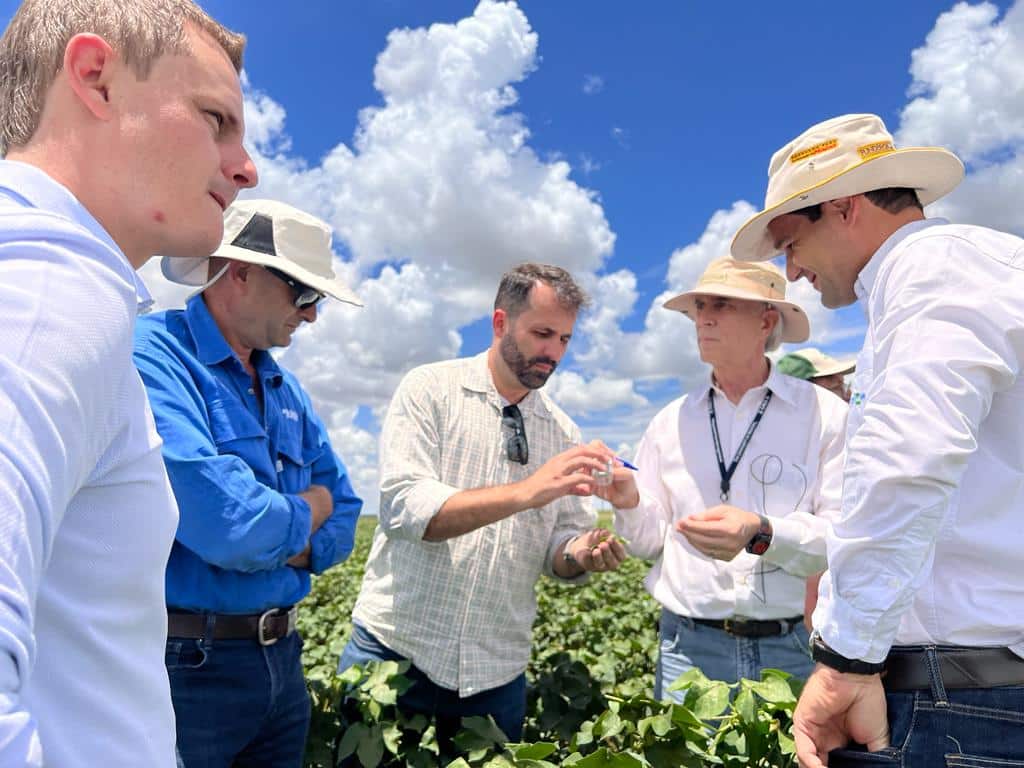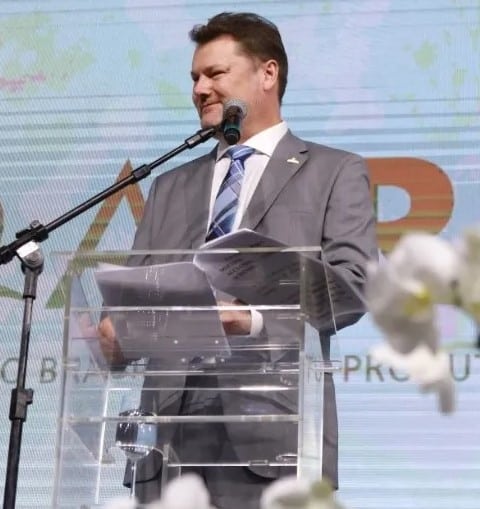
Better Cotton today announces an Integrated Pest Management (IPM) workshop organised in collaboration with ABRAPA, the Brazilian Association of Cotton Producers. Taking place in Brasilia, Brazil, from 28 February to 2 March, the workshop will bring sector experts together to discuss IPM, with the aim of sharing research and innovative initiatives regarding the control of pests and diseases in the cotton crop.
Spread across three days, the workshop will gather national experts on IPM in Brazil and showcase international and national best practices related to reducing the use of chemical pesticides. This will include sessions from Dr Paul Grundy, Technical Lead for IPM at CottonInfo in Australia, who will present a case study on reducing synthetic pesticide use, and Dr Peter Ellsworth, Professor of Entomology at the University of Arizona, who will put forward IPM strategy recommendations for Brazilian producers. National best practices will be presented and discussed by representatives from Embrapa, state-based cotton grower associations, the Brazilian Ministry of Agriculture & Livestock, and research institutions.
The event will include a field visit to SLC, a Better Cotton and ABRAPA-licensed farm which has seen success in adopting IPM practices, including the use of biological pest control and other alternatives to synthetic pesticides to treat its cotton plants. Experts from Better Cotton and ABRAPA will also give presentations, as participants come together to look at both the challenges and the opportunities for Brazilian producers.
ABRAPA has been Better Cotton’s Strategic Partner since 2013, when its own sustainable cotton certification programme (ABR) was successfully benchmarked against the Better Cotton Standard System – BCSS. Today, 84% of Brazilian large farms participate in both certifications and Brazil is currently the largest producer of Better Cotton, representing approximately 42% of global production.
In a tropical climate with intense pest pressure, in particular from the boll weevil pest, and with a longer agronomic cycle than other crops (up to 200 days in some available varieties), Brazilian cotton farmers face a real challenge in reducing their use of pesticides to protect their crops. The ABR programme works to meet this challenge, promoting research, field training in IPM and labour and environmental care. The workshop will enable participants to discuss a roadmap for a national Brazilian IPM strategy, strengthening the ABR and the international partnership with Better Cotton.
2023 marks the tenth anniversary of our partnership with ABRAPA, during which time we have worked together to identify and promote good practices and bring greater benefits to cotton producers, workers, and the environment. One of the key challenges we face in making the cotton sector more sustainable for all is minimising the harmful impact of crop protection, which is why events like this workshop are so integral to our work. I look forward to collaborating with Better Cotton’s partners in Brazil to deliver technical recommendations on Integrated Pest Management.
Alexandre Schenkel, President of ABRAPA and cotton grower, noted that given the natural climate and soil conditions in Brazil, which does not have harsh winters or other factors that break the cycle of pests and diseases, the use of pesticides within an IPM model is a key sustainability issue.


Brazilian cotton producers are rational in the use of these inputs, which, in fact, represent the largest portion of their agricultural costs. Each day, we are adding other technologies to our IPM, with a great emphasis on biological solutions.
He also stated that finding sustainable solutions to protect cotton crops and fostering the adoption of better agricultural practices are top priorities for ABRAPA, highlighted in the ABR programme.
ABR has been increasingly recognised by markets, governments and society and, this year it completes a decade of benchmarking with Better Cotton, the global leader in licensing responsibly produced cotton.
To find out more about Better Cotton’s work in Brazil, head to this link.







































